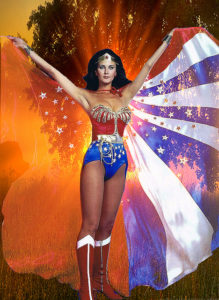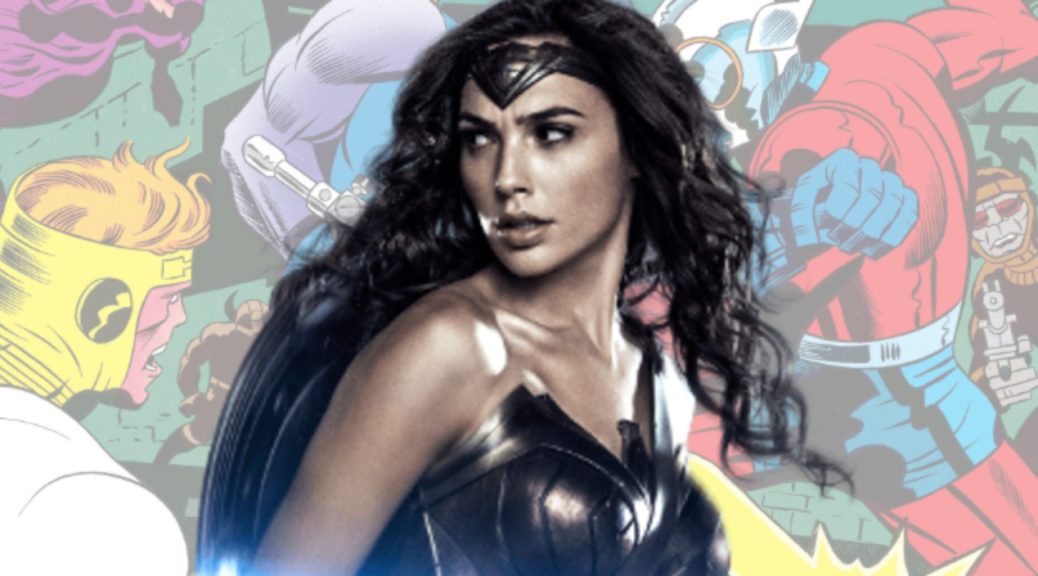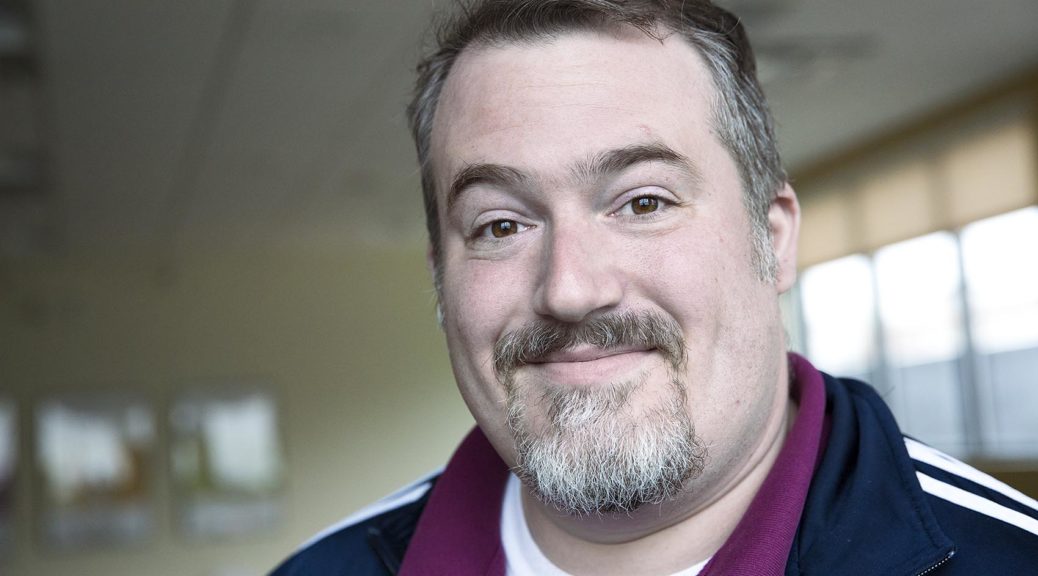The Religion in American History blog is celebrating a milestone this month, with 10 years in continuous publication. As a tip of the hat to them, Sacred and Sequential wanted to highlight their 2013 discussion of religion and comics by Matthew Cressler and to wish them another excellent decade!
Category Archives: online
The Complicated Theology of a Wonder Woman

[The following piece was originally published for the Colorado Council of Churches website and it is reposted here with the author’s permission.]
Even before the new movie broke box office records and charmed the world this summer, Wonder Woman was an icon for feminism. She has a set of values in the film that closely approximates the best of theological thinking. That is, the movie hints at some concepts that have been core to the character from her creation—that love and diplomacy are better tools than war in solving the world’s problems and that women should have a role in leadership toward peace. Yes, the film has some well-executed fight scenes, but Diana—the Wonder Woman at the center—is determined to use her skills to defend and help. She refuses to vilify the soldiers and ordinary people participating in the violence of World War I; she remains convinced that human beings can be better than they are.
It’s complicated to use a fictional comic character as an icon for anything—peace, diplomacy, or feminism—because so many people are responsible for creating stories about the same character. Creators rarely agree on a single focus or value for characters in their charge. In this short presentation, which I did last year before the film came out, I wrestle with the way two very different origin stories for Wonder Woman create tensions around the character as an “ideal” woman. Thank you to Ryan Duncan and Cathie Kelsey at Iliff School of Theology for inviting me to share my passion for comics with the gathering for International Women’s Day last year. (I misspeak in the opening line of this video and say Women’s Day is a “year” rather than a day, but it’s just wishful thinking!)
I hope you enjoy learning about a little about the tangle of origin stories and my call to be wonders in the world. Despite the complexities, I’m happy that this character exists to give hope and inspiration to women. In moments when I feel powerless, it’s wonderful to have stories about a woman of such obvious power and love. I’m thrilled that this generation has the 2017 film to give them such a positive picture of the possibilities of this character.
For more, watch this video of Dr. Coody!
Elizabeth Rae Coody, PhD directs the Writing Lab at the Iliff School of Theology in Denver, Colorado. Her own writing is often about the Bible and comics. As a trained biblical scholar whose PhD is in Religious and Theological Studies with a concentration in Biblical Interpretation, she values the contributions to biblical interpretation that popular culture can make. Her 2015 dissertation project was on the way comics can help interpreters imagine the scandal of Jesus’s death on the Cross that is often domesticated by modern Christian sensibilities. Her work continues and expands themes of how popular culture can give insight into the Bible and how knowledge of the Bible can return the favor.
A. David Lewis Discusses Islam, Comics, Syria, and Flintstones with Boston’s NPR
 In just under a span of 10 minutes, S&S’s own A. David Lewis managed to address a span of issues with “Here & Now” co-host Robin Young on a recent WBUR broadcast. Touching on Ms. Marvel, the upcoming Muslim Superheroes essay collection, Ta-Nehisi Coates’s Black Panther and the Crew, and his own Kismet, Man of Fate, Lewis blitzed Young with a full update of many topics at the intersection of the comic book medium and Islam. And, he vouched for the surprising brilliance of the new Flintsones series, to boot!
In just under a span of 10 minutes, S&S’s own A. David Lewis managed to address a span of issues with “Here & Now” co-host Robin Young on a recent WBUR broadcast. Touching on Ms. Marvel, the upcoming Muslim Superheroes essay collection, Ta-Nehisi Coates’s Black Panther and the Crew, and his own Kismet, Man of Fate, Lewis blitzed Young with a full update of many topics at the intersection of the comic book medium and Islam. And, he vouched for the surprising brilliance of the new Flintsones series, to boot!
Additionally, WBUR provided this video clip of Lewis going into further explanation of his charity work for Syria.
To support this venture, go to their Razoo fundraising page.
Reexamining “Our Gods Wear Spandex,” Superheroes as Occult Gods

Over at True Free Thinker, Ken Ammi digs deep into the 2007 text Our Gods Wear Spandex by Christopher Knowles. In addition to placing it in context to several other notable works of the time, Ammi supports Knowles’s contention of occult symbology embedded in the superhero genre, particularly that of pre-Christian paganism:
Although most of us don’t realize it, there’s simply nothing new about devotion to superheroes. Their powers, costumes, and sometimes even their names are plucked straight from the pre-Christian religions of antiquity. When you go back and look at these heroes in their original incarnations, you can’t help but be struck by how blatant their symbolism is and how strongly they reflect the belief systems of the pagan age…
Ammi goes into a example-by-example analysis of such heroes as Captain Marvel, Zatara and Zatanna, Doctor Fate, Superman, the Flash, the X-Men, and many more. His examination of Captain America in particular may take on new relevance during the controversial “Secret Empire” storyline currently underway.
Our Gods Wear Spandex is available at Amazon.com.
Returning to the Religious Studies Project’s Comics Warning
 A year or two ago, S&S Founding Members David McConeghy and A. David Lewis sat down to discuss the latter’s new book, American Comics, Literary Theory, and Religion: The Superhero Afterlife for The Religious Studies Project. Since that time, The Superhero Afterlife went on to be nominated for an Eisner Award, and McConeghy has switched American coasts, moving from West to East.
A year or two ago, S&S Founding Members David McConeghy and A. David Lewis sat down to discuss the latter’s new book, American Comics, Literary Theory, and Religion: The Superhero Afterlife for The Religious Studies Project. Since that time, The Superhero Afterlife went on to be nominated for an Eisner Award, and McConeghy has switched American coasts, moving from West to East.
However, at around the same time, RSP’s own David G. Robertson penned this incisive response to the subject of their conversation, which, in light of 2017 politics and recent criticism of mainstream superhero storylines, now feels remarkably prescient.
Therefore it is vitally important for a non-essentialist and non-elitist study of religion that we consider comics in their cultural and historical context. Without that, structural analyses may be merely repeating hegemonic categories and structures of power.
Robertson is a Co-founding Editor of the Religious Studies Project and a committee member of the British Association for the Study of Religion. For his full CV, see his Academia page or personal blog here.


